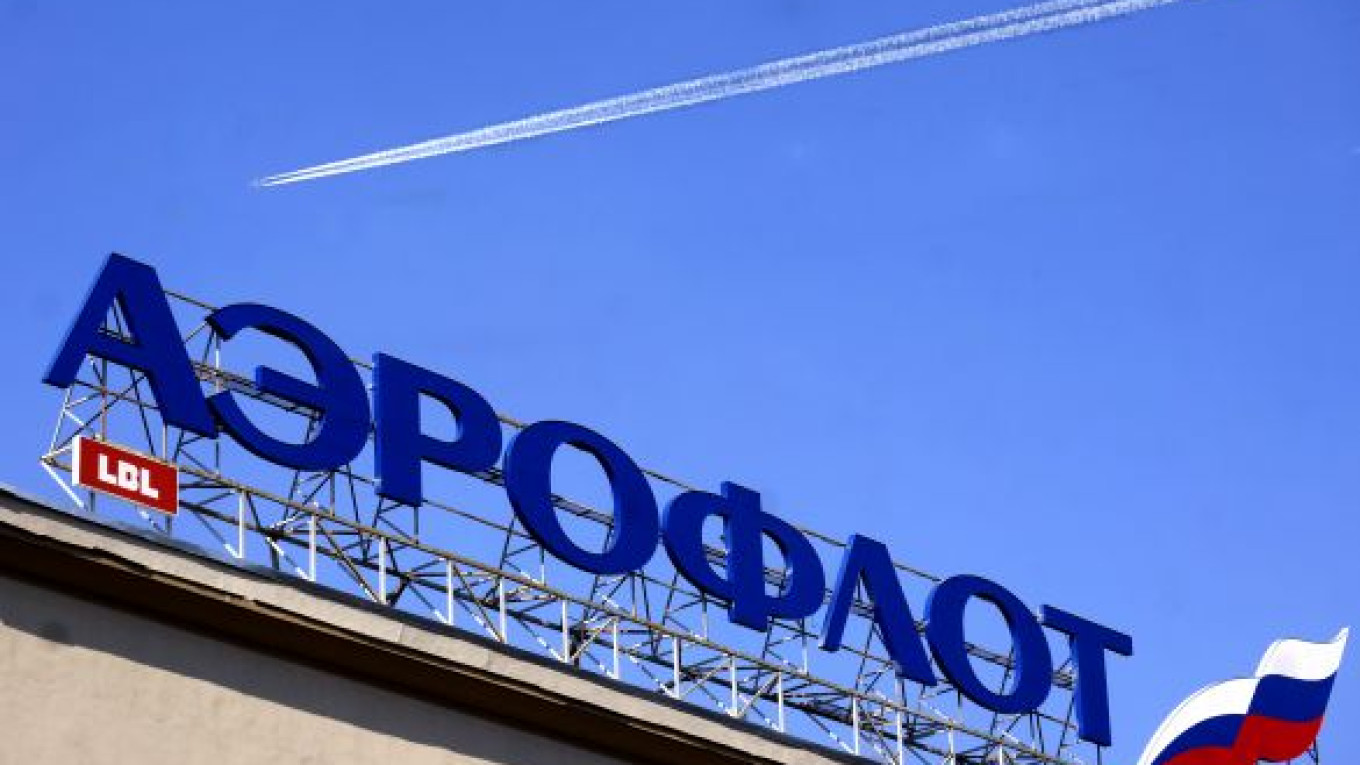Aeroflot will retain its so-called royalty, or overflight, fees it levies on airlines flying nonstop across Russia after 2014, when they were previously expected to be canceled, Deputy Transportation Minister Valery Okulov said Wednesday.
"There are agreements between Russia and the European Union to change the way the royalty is levied on trans-Siberian flights to make them more appropriate and transparent, but they will not be fully cancelled," he said, Itar-Tass reported.
Okulov also said the overflight fees system was a subject of negotiations between Russia's aviation authorities and EU member countries.
But an unidentified source at the Transportation Ministry earlier told Vedomosti that starting from 2014 a state corporation that oversees civil aviation flights would start to receive overflight fees instead of Aeroflot.
Russia's flag carrier has so far kept the monopoly right it had since the Soviet era to levy fees on foreign airlines for flying over the territory of the country nonstop from Europe to Asia.
Aeroflot does not disclose how much exactly it gets in overflight fees, but experts estimate the airline receives $200 million in such payments per year on average.
“Overflight fees make up a significant part of the company’s net profit,” said Andrei Rozhkov, a senior analyst at Metropol. “Without them, Aeroflot would report either zero net profit or even a slight loss, considering its current results.”
In 2012, Aeroflot reported a net profit of 4.9 billion rubles ($146 million) under International Financial Reporting Standards.
The EU has long been insisting on canceling the royalties because it views them as discriminating against European airlines.
The European Commission earlier even threatened legal action against several EU member states that concluded agreements to pay royalty fees for trans-Siberian flights.
Before being admitted to the World Trade Organization, Russia promised to gradually decrease the amount of overflight fees until they were fully canceled starting from 2014.
"Russia has agreed to undertake international obligations, which means no trans-Siberian flight will be subject to royalty fees starting from 2014," a spokesman for the EU representative office in Russia said, Itar-Tass reported.
The WTO documents did not specify how the overflight fees should be levied, Andrei Rozhkov of Metropol said. "They only implied that the fees will not be levied on new routes, but that just means that the ones paid by airlines before will remain."
Okulov said the results of the negotiations with the EU on overflight fees would depend on how much foreign airlines would be charged for fuel emissions under Europe's Emissions Trading System.
It seems that the government does not have a single position on how to levy overflight fees on foreign airlines, experts said.
"On the one hand, these fees are a tool for putting pressure on the European Union, which plans to start charging all airlines for fuel emissions next year," Rozhkov said. "On the other hand, the Russian government has declared plans to sell part of its stake in Aeroflot, which means that it is unlikely that the royalty fees will be lifted as it would mean a loss of capitalization for the company prior to the sale."
Contact the author at [email protected]
A Message from The Moscow Times:
Dear readers,
We are facing unprecedented challenges. Russia's Prosecutor General's Office has designated The Moscow Times as an "undesirable" organization, criminalizing our work and putting our staff at risk of prosecution. This follows our earlier unjust labeling as a "foreign agent."
These actions are direct attempts to silence independent journalism in Russia. The authorities claim our work "discredits the decisions of the Russian leadership." We see things differently: we strive to provide accurate, unbiased reporting on Russia.
We, the journalists of The Moscow Times, refuse to be silenced. But to continue our work, we need your help.
Your support, no matter how small, makes a world of difference. If you can, please support us monthly starting from just $2. It's quick to set up, and every contribution makes a significant impact.
By supporting The Moscow Times, you're defending open, independent journalism in the face of repression. Thank you for standing with us.
Remind me later.


